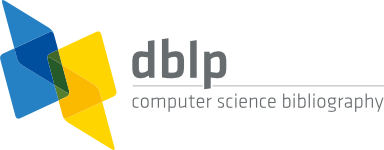SPECIAL ISSUES
[CLOSED] Enabling intelligence beyond cloud with Biomedical signal processing and Health informatics
2023.04.19
Nowadays, it is increasingly important to use biomedical signals in a variety of distributed
applications, and the medical research process makes use of them to analyse their key aspects. In critical
situations where effective treatment of multiple diseases is required, applying biomedical signal processing
with rapid action is possible. The same procedure may be carried out with any wireless module, but because
biomedical signals processing is used directly to monitor bodily states, it is preferable to apply it across
all the distribution lines with a cloud infrastructure. Due to the use of voltage stability, the primary
benefit of the cloud infrastructure is that knowledge will be automatically disseminated to other users.
Health informatics, which is concerned with the procurement, transmission, encoding, handling, information
extraction, and use of healthcare data, has become a vibrant area of integrative efforts to determine how
to address these unmet healthcare needs, particularly for the automatic detection and treatment of preventable
diseases. In particular, gathering data about one wellbeing through covert modulation and wearable electronics
is regarded as the foundation of health informatics.
The development of preferable personal evaluation methods to screen moderate contingent service users at
an early stage and the encouragement of service users identified at cardiovascular risk to adhere to
holistic existence styles are all made possible by the innovative trends in cardiac health informatics,
which relate to the incorporation, computation, integration, and perception of stochastic and collaborative
cardiovascular health information. Research, development, and application of systematic and algorithmic
methods towards data processing challenges are presented in Smart Cognitive Computing in Biomedical and
Health Informatics. This includes assessing emerging trends in health informatics and software-assisted
medical opinion. The rising prevalence of degenerative illnesses and secondary infections are among the
most serious challenges confronting modern society. Incorporated biomedical signal processing on increasing
intensity provides the potential for moderate signal functions as well as computational resources, which
entails computations on low-rate research parameters that are very simple and extremely sequential. The
incorporation of technology and digitalization in healthcare is the domain of health informatics.
This special issue is intended for users of single- and multi-core processor structures for biological signal
processing. Authentic computation and resource efficiency are the main design goals. The distinctive
characteristics of biomedicine need to be considered in health informatics and communication research.
Health information processes and digital preservation creation can take into account the information
requirements and usage patterns of all users.
 SUBJECT COVERAGE
SUBJECT COVERAGE
Topics of interest include, but are not limited to, the following:
- 1. An explanation of Principal component analysis and its significance in biological signal processing
- 2. Rehabilitation and transformation of public health using informatics in the knowledge economy
- 3. A system for processing biological signals with extremely low energy and near-threshold
- 4. Stochiastic derivative calculus in creation of digital filters for biomedical signal processing
- 5. Analog wavelet filtering for implantable devices in ultra-low-power biomedical signal processing
- 6. An inspiration for developing health informatics as well as information technology
- 7. The analysis of the health informatics adoption model for technology
- 8. Medical decision-making process analysis using cognitive techniques to health informatics
- 9. Medical decision-making practice principles using cognitive techniques to health informatics
- 10. An overview of association rule mining techniques in health informatics
- 11. Healthcare technology informatics: present trends and upcoming issues in usability and accessibility
 SUBMISSION GUIDELINE
SUBMISSION GUIDELINE
Papers must be submitted to the Manuscript Link service - https://www.manuscriptlink.com/journals/jips.
It is important that authors should select "JIPS Survey / Special Issue" and " Enabling intelligence
beyond cloud with Biomedical signal processing and Health informatics" when they reach the "Basic
Information" step in the submission process. Before submitting papers, you need to read the JIPS submission guideline.
 Notification of APC
Notification of APC
US $890 or KRW 940,000
- Additional Fee: KRW 100,000 (US$100) per page (within 4 pages)
- Remark: The size must be within 11 pages including a photo and a profile (refer to the sample paper format).
 GUEST EDITORS
GUEST EDITORS
Dr. Chi-Bao Bui
School of Medicine,
Vietnam National University,
Ho Chi Minh City, Vietnam.
Email: bcbao@ump.edu.vn, cbb6283@gmail.com
Google Scholar: https://scholar.google.com/citations?user=NR00wNEAAAAJ&hl=en
Co-Guest Editor Details:
Dr. Nguyen Thi Hiep
Associate Professor
School of Biomedical Engineering,
International University,
Ho Chi Minh City 700000, Vietnam.
Email: nthiep@hcmiu.edu.vn
Google Scholar:
https://scholar.google.com.vn/citations?user=H31-ymcAAAAJ&hl=en
Dr. Minh Nguyen Anh Ho
Department of Dermatology,
Yale University,
New Haven, CT 06520, USA
Email: minh.ho@yale.edu
Google Scholar:
https://scholar.google.com/citations?user=zTPLn4AAAAAJ&hl=en
 Important Dates
Important Dates
- - Submission Deadline of Papers: July 20, 2023
- - Authors Notification Date: September 25, 2023
- - Revised Papers Due Date: December 10, 2023
- - Final notification Date: March 5, 2024









